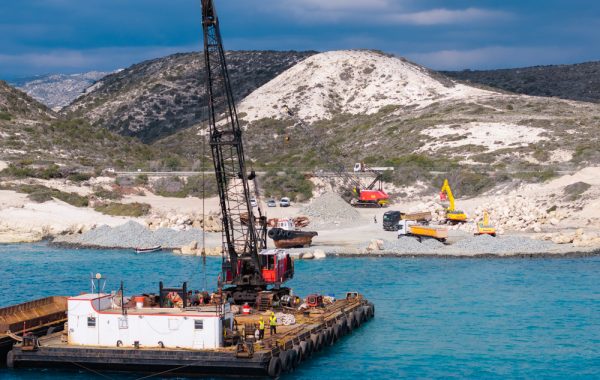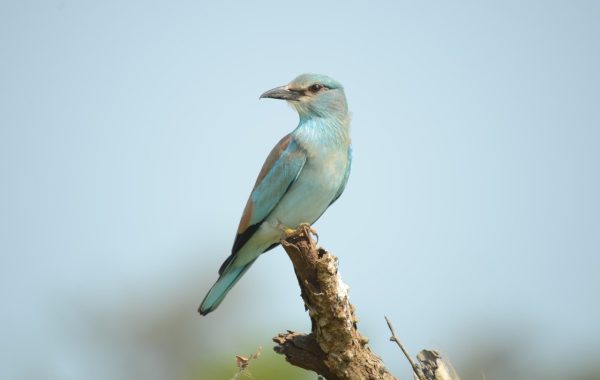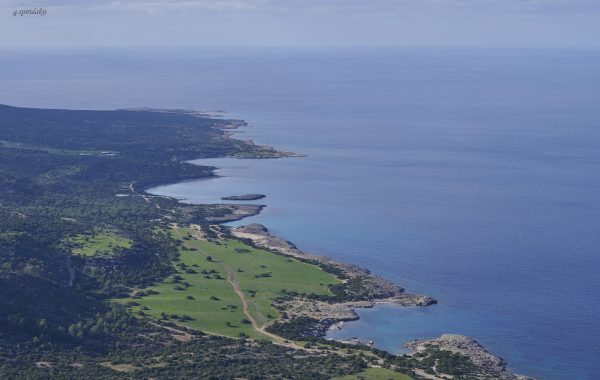There was a time when lead was used in many household items, like paint. It wasn’t so long ago that it was phased out of gasoline. As with any big change, there must have been reactions back then, when unleaded gas was being discussed. Such big, but necessary, switchovers need decisive action on the highest political level, always guided by science, to convince even the most skeptical, as it is in everyone’s best interest.
It is therefore important to distinguish fact from myth when making as big a step as a full ban on lead in ammunition for outdoor shooting and in fishing tackle. A proposal for such a restriction was open for consultation in September at the EU level, following the historic decision that came into force earlier this year to ban the use of lead gunshot in wetlands in all of the EU.
FACT: Lead is toxic for humans, game and wildlife
There is absolutely no doubt, that lead is highly toxic. It has already been banned from pipes, paints and gasoline in developed countries. However, lead is still used in some products, such as in hunting ammunition and fishing tackle. There is overwhelming evidence that spent lead ammunition adversely impacts wildlife and their habitats and poses a risk to human health – especially young children in households that frequently consume game meat. Hunters can often be unaware of the scale of lead poisoning that goes on, as sick birds can become secretive or are scavenged before they are found, making the detection and recognition of the problem difficult. In fact, it has been estimated that 1 million water birds die each year from lead poisoning throughout the EU.
This is a very relevant issue for Cyprus, where hunters are numerous and the use of lead ammunition is predominant. Earlier in the year, the issue of lead poisoning of large numbers of Flamingos from ingested pellets left from an old firing range at Larnaca Salt Lakes made headlines in the local and international media. Moreover, serious lead contamination at Lake Soros, an area near which hunting takes place, has been confirmed, while shooting ranges close to wetlands are not a rare sight e.g. at Paralimni Lake.
MYTH: ‘There are no lead alternatives, you are just trying to stop hunting’
Alternatives to lead ammunition exist and in the future they will grow as demand drives the market. For example, steel gunshot appears to be comparable in terms of price and effectiveness. Frequent claims that use of non-lead ammunition is impossible have been studied and refuted.
Progressive hunters realise that it’s in every hunter’s best interest to switch to non-lead ammunition and there are groups in Europe who support this transition. The objective here is not to stop hunting, but to ensure that these activities do not pollute the environment. The continuation of hunting in countries that have completely banned lead shots decades ago, like Denmark, is tangible evidence that it can be done.
We would like to believe that ‘tradition’ cannot justify continuing a practice that is harmful to all, and that protecting nature and everyone around us is closer to our Cypriot traditions and values, than is the use of lead.
MYTH: ‘There are other unhealthy substances, you are just targeting hunting because you don’t like it’
There are indeed many unhealthy substances. And we support the European Green Deal in defining a zero-pollution ambition for a toxic-free environment in the EU. Action should be taken on all levels to stop pollution of our ecosystems, including by agriculture, and all regulations and restrictions should be complementary to each other; in fact, we see no reason why they should be considered as competing with each other.
Promoting the ban of lead in one more human activity, after it has been banned in almost all others, is not targeting hunting but targeting a heavily toxic substance which has no safe levels of exposure i.e. it is harmful at any exposure levels. It is for this reason that lead ammunition was banned in wetlands at the start of 2021 at the EU-level, realising that hunting unfortunately is a major source of lead in freshwater ecosystems. In fact, in Cyprus the use of lead ammunition close to wetlands has been prohibited since 2007. According to the European Chemicals Agency, it is estimated that each year around 100,000 tonnes of lead are dispersed into the EU environment, 79% coming from sports shooting, 14% from hunting and 7% from fishing.
MYTH: ‘It is all happening too fast’
In fact, the delay in banning lead from ammunition is shameful. Lead’s impact on health has been known for a very long time and its impact on waterbirds and the need to ban it from nature has been known for decades. The Agreement on the Conservation of African-Eurasian Migratory Waterbirds (AEWA) which is an intergovernmental treaty administered by the UN, has been working towards a ban on the use of toxic lead ammunition since it was established more than two decades ago. In fact, AEWA’s Contracting Parties (82 countries, including the EU and its Member States) were supposed to phase out lead ammunition in wetlands by 2000! It is not happening too fast, quite the opposite, it is happening too slow and there is no more time to waste on this.
FACT: Nature is struggling
We simply have no more time to waste in changing the narrative and becoming sustainable in all that we do as humans. With the rate that nature is declining globally, and up to 1 million species threatened with extinction, we have no other choice but to follow the science and take decisive action on all sectors; be it the banning of lead in ammunition outdoors, changing the way we support farming, restoring habitats or adapting our policies to the realities of climate change. It all forms part of the puzzle towards a sustainable future, including sustainable hunting, and we all need to contribute our bit to protect our planet.
Together, we can make Europe a safer, healthier place for people and nature. Sign this petition and join our call to demand the end of lead poisoning. Lead ammunition and fishing weights must no longer pose a risk to European citizens, environment and wildlife.




